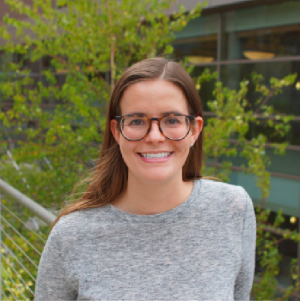When Chancellor Carol Christ released UC Berkeley’s strategic plan for 2019-2029, two overarching goals were relevant to the Global Poverty & Practice minor and the Blum Center’s graduate program, Development Engineering.
The first goal was to “empower engaged thinkers and global citizens to change our world. Specifically, Christ wrote: “Acts of discovery—self-initiated projects that create new knowledge—will be a focal point of undergraduate study. Engagement with the world beyond campus, and reflection on the meaning of an education, will also be key to the Berkeley experience. Master’s students will see increased investment in their knowledge and skill-building, and doctoral students will receive added training, mentorship, and financial support.”
The second goal was “focusing on the good: innovative solutions for society’s great challenges.” Christ explained, “Faculty, staff, students, alumni, and our larger community will come together to address the great challenges of our time that Berkeley is particularly well suited to address, including technological change and artificial intelligence; environmental sustainability; the future of democracy; inequality; human health; and the future of public higher education.”
These two goals are already integrated into Global Poverty & Practice (GPP). They also are being exercised in several new mentoring arrangements between GPP and Development Engineering students focused on socioeconomic solutions with community groups and NGOs.
Take the Pinoleville Pomo Nation collaboration. Since 2017, several GPP and Development Engineering students have been working with a Native American tribe of 300 people based in Ukiah, California and an interdisciplinary UC Berkeley group called CARES—Community Assessment of Renewable Energy and Sustainability—to co-design STEM education activities for native students.
For George Moore, a UC Berkeley Mechanical and Development Engineering graduate student, the project has been a means to further educational equity and gain teaching skills. He recounted that both graduate students and undergraduate students, such as GPP student Arielle Dollinger, were able to co-design the 2018 STEM education workshop with community members.
“Among the decisions we collectively made were to teach engineering design through Pomo Pinoleville basket-making techniques and to engage students in 3D printing designs from local art and nature,” said Moore.
Dollinger said the CARES-Pinoville Pomo Nation project was appealing for her GPP Practice Experience because she wanted to work locally and in an interdisciplinary vein.
“It was really up my alley because I’ve taken Native American Study classes and I am committed to environmental justice and social equity,” said Dollinger, who added that the Development Engineering team was “very open to undergraduates contributing input and insights and opinions. We conducted weekly meetings throughout the spring semester, and I felt I was part of the development of the project. Also, just having the opportunity to work with a California indigenous community was a huge privilege and honor.”

Another recent mentoring collaboration between Development Engineering and GPP students involves Visualize, founded by Mechanical Engineering PhD student Julia Kramer. Kramer started the project—a healthcare design and training program to teach midwives in Ghana to screen women for cervical cancer—as an undergraduate at University of Michigan and continued it during her summers at Cal, winning a Big Ideas award in 2015. In the fall of 2016, she decided to connect to a Cal group called Invention Corps, to find project assistants. There, she met Iris Huo, an undergraduate economics and GPP student, who has since worked with Kramer to iterate on Visualize and, during the summer of 2018, accompanied her to Ghana.
“I understood right away the tangible impact of Visualize to affordably and effectively reduce mortality rates in women,” said Huo. “The work has been the most life-changing experience I’ve had, especially what I learned in Ghana. And Julia, to this day, remains the paragon of mentorship that we have at Invention Corps.”
Kramer—who is mentored by Blum Center Education Director Alice Agogino, a nationally recognized expert on mentoring students in interdisciplinary engineering—has found the collaboration equally rewarding.
“I’ve had really positive interactions,” Kramer said of working with GPP and other undergraduate students on Visualize. “The other part was certainly logistical. I was studying for my quals the semester I started working with them—so the idea of them helping out and being the actual hands that were doing the design work, where I could just do the mentoring and oversight, was really appealing to me. I also felt I had time to meet with them weekly, field questions, and give them more feedback than a busy tenure track professor would have.”





